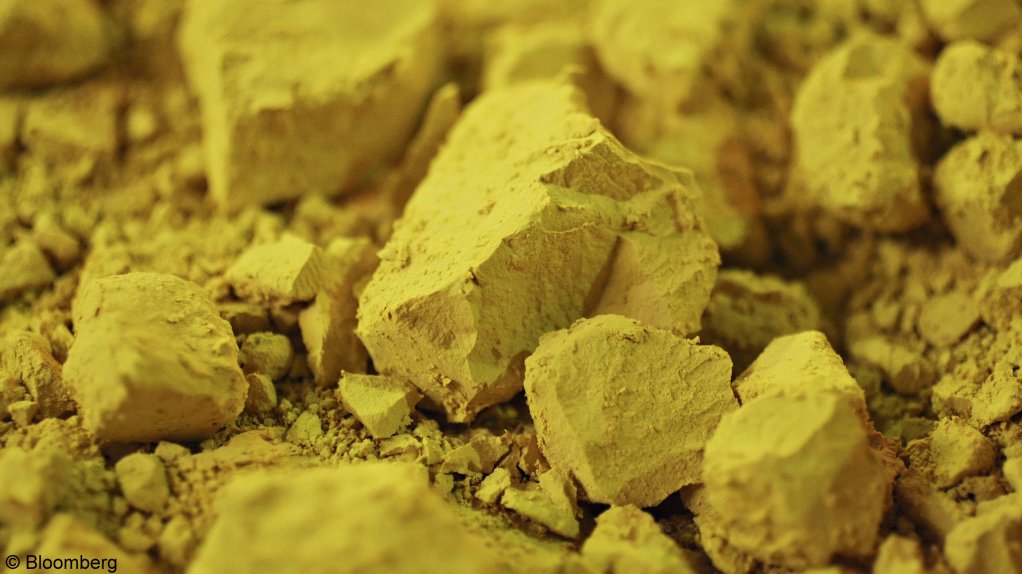US utilities push White House not to sanction Russian uranium
The US nuclear power industry is lobbying the White House to allow uranium imports from Russia to continue despite the escalating conflict in Ukraine, with cheap supplies of the fuel seen as key to keeping American electricity prices low, according to two sources familiar with the matter.
The United States relies on Russia and its allies Kazakhstan and Uzbekistan for roughly half of the uranium powering its nuclear plants - about 22.8-million pounds (10.3 million kg) in 2020 - which in turn produce about 20% of US electricity, according to the US Energy Information Administration and the World Nuclear Association.
Washington and its allies have imposed a series of sanctions on Moscow in the past week as Russian forces pushed deeper into neighboring Ukraine, though the sanctions exempt uranium sales and related financial transactions.
The National Energy Institute (NEI), a trade group of US nuclear power generation companies including Duke Energy and Exelon, is lobbying the White House to keep the exemption on uranium imports from Russia, the sources said.
The NEI lobbying aims to ensure that uranium is not caught up in any future energy-related sanctions, especially as calls intensify to sanction Russian crude oil sales, the sources said.
"The (US nuclear power) industry is just addicted to cheap Russian uranium," said one of the sources, who declined to be named, citing the sensitivity of the situation.
Duke and Exelon, two of the largest US utilities, could not immediately be reached for comment.
Washington-based NEI said that it supports a diversity of uranium supply, including the development of US facilities to produce and process the fuel.
"While Russia is a significant global supplier of commercial nuclear fuel, US utilities contract with a worldwide network of companies and countries for their fuel requirements to mitigate the risks of potential disruption," said Nima Ashkeboussi, NEI's senior director of fuel and radiation safety.
The Biden administration has said it is working to keep American energy costs low.
"We are listening to all inquiries from industry and will continue to do so as we take measures to hold Russia accountable," a White House official said when asked about the uranium lobbying.
Uranium is used as a fuel inside reactors to achieve nuclear fission to boil water and generate steam that spins turbines to generate electricity.
There is no uranium production or processing in the United States currently, though several companies have said they would like to resume domestic production if they can sign long-term supply contracts with nuclear power producers. Texas and Wyoming have large uranium reserves.
Australia and Canada also have large reserves of uranium and there is ample processing capability there and in Europe. But Russia and its satellites are the cheapest producers.
The US nuclear power industry's use of Russian uranium is likely to spark further questions about where and how the United States procures the materials needed to supply high-tech and renewable-energy products, a dependency that President Joe Biden singled out last week as a national security threat.
Russia's uranium production is controlled by Rosatom, a state-run company formed by Russian President Vladimir Putin in 2007. The company is an important source of revenue for the country.
Former U.S. President Donald Trump in 2020 proposed spending $150-million to create a strategic uranium reserve, and Biden administration officials have expressed support for the idea.
Other utilities around the globe have already begun looking beyond Russia for supply. Swedish power company Vattenfall said last week it would stop buying Russian uranium for its nuclear reactors until further notice, citing the Ukrainian conflict.
Comments
Announcements
What's On
Subscribe to improve your user experience...
Option 1 (equivalent of R125 a month):
Receive a weekly copy of Creamer Media's Engineering News & Mining Weekly magazine
(print copy for those in South Africa and e-magazine for those outside of South Africa)
Receive daily email newsletters
Access to full search results
Access archive of magazine back copies
Access to Projects in Progress
Access to ONE Research Report of your choice in PDF format
Option 2 (equivalent of R375 a month):
All benefits from Option 1
PLUS
Access to Creamer Media's Research Channel Africa for ALL Research Reports, in PDF format, on various industrial and mining sectors
including Electricity; Water; Energy Transition; Hydrogen; Roads, Rail and Ports; Coal; Gold; Platinum; Battery Metals; etc.
Already a subscriber?
Forgotten your password?
Receive weekly copy of Creamer Media's Engineering News & Mining Weekly magazine (print copy for those in South Africa and e-magazine for those outside of South Africa)
➕
Recieve daily email newsletters
➕
Access to full search results
➕
Access archive of magazine back copies
➕
Access to Projects in Progress
➕
Access to ONE Research Report of your choice in PDF format
RESEARCH CHANNEL AFRICA
R4500 (equivalent of R375 a month)
SUBSCRIBEAll benefits from Option 1
➕
Access to Creamer Media's Research Channel Africa for ALL Research Reports on various industrial and mining sectors, in PDF format, including on:
Electricity
➕
Water
➕
Energy Transition
➕
Hydrogen
➕
Roads, Rail and Ports
➕
Coal
➕
Gold
➕
Platinum
➕
Battery Metals
➕
etc.
Receive all benefits from Option 1 or Option 2 delivered to numerous people at your company
➕
Multiple User names and Passwords for simultaneous log-ins
➕
Intranet integration access to all in your organisation



















